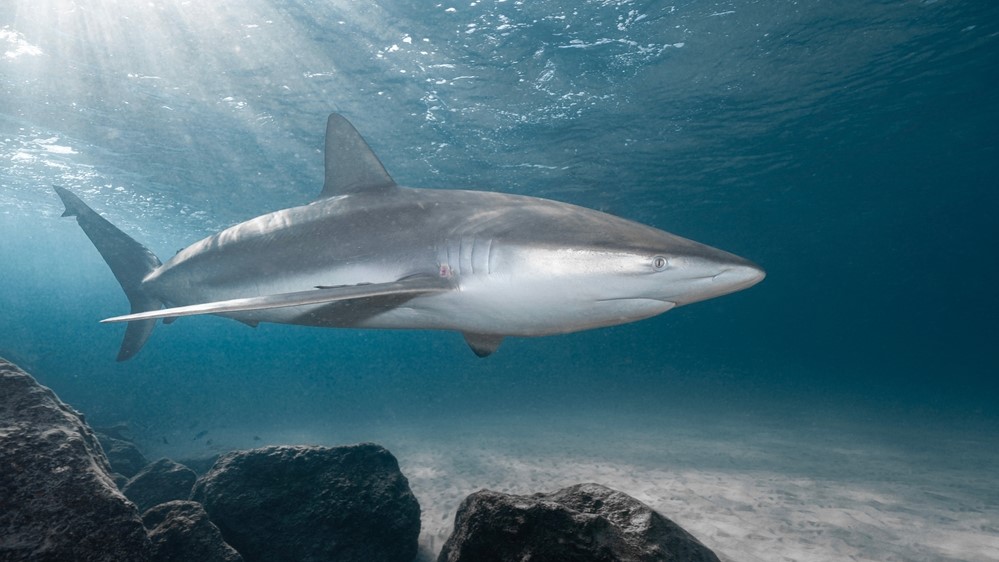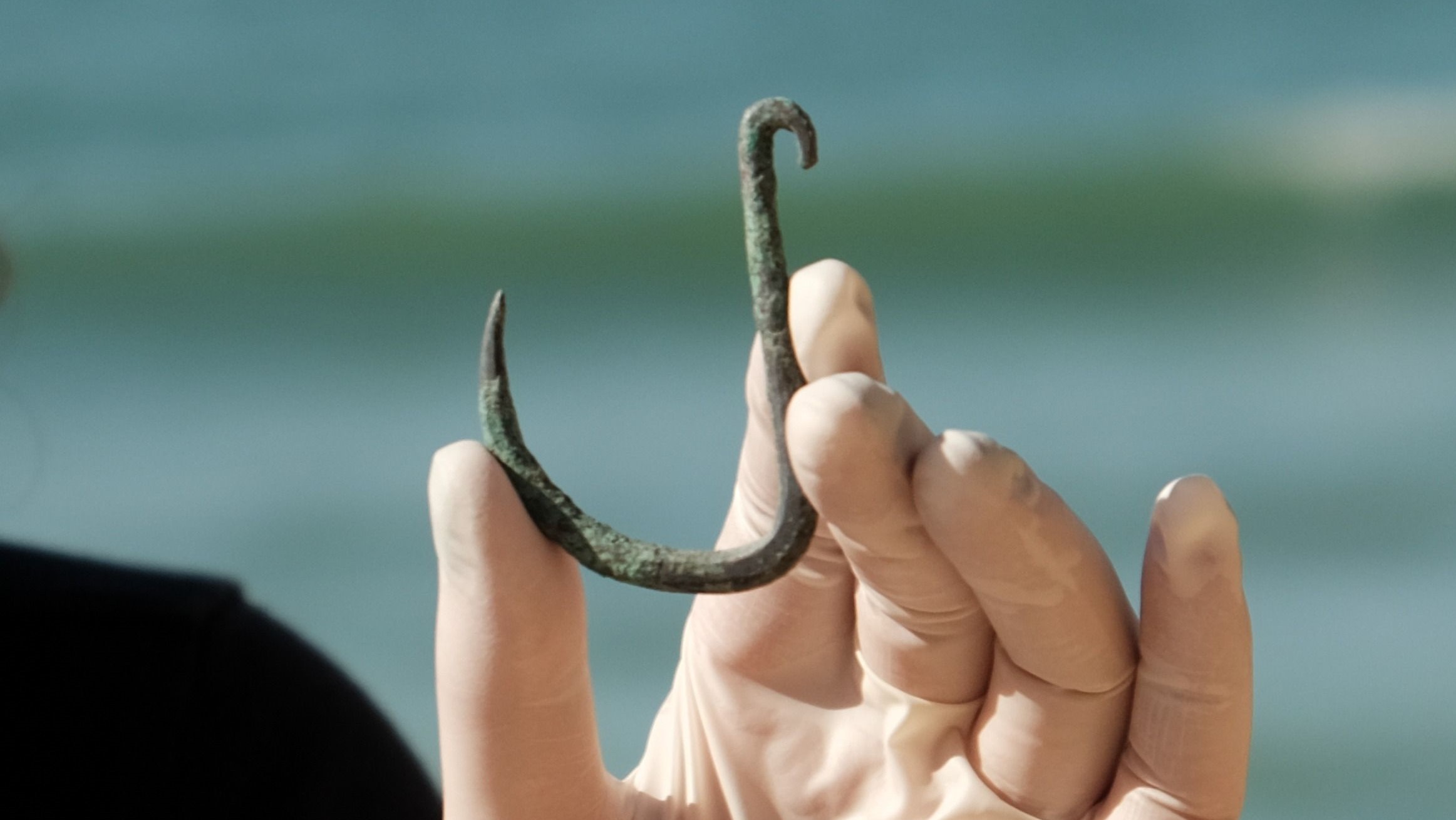Ancient fish hook suggests sharks were hunted off Israel's coast 6,000 years ago
Researchers unearthed the "shark hook" at a newly discovered village buried under a known archaeological site. Experts say it could be one of the first of its kind made in the area.
Get the world’s most fascinating discoveries delivered straight to your inbox.
You are now subscribed
Your newsletter sign-up was successful
Want to add more newsletters?

Delivered Daily
Daily Newsletter
Sign up for the latest discoveries, groundbreaking research and fascinating breakthroughs that impact you and the wider world direct to your inbox.

Once a week
Life's Little Mysteries
Feed your curiosity with an exclusive mystery every week, solved with science and delivered direct to your inbox before it's seen anywhere else.

Once a week
How It Works
Sign up to our free science & technology newsletter for your weekly fix of fascinating articles, quick quizzes, amazing images, and more

Delivered daily
Space.com Newsletter
Breaking space news, the latest updates on rocket launches, skywatching events and more!

Once a month
Watch This Space
Sign up to our monthly entertainment newsletter to keep up with all our coverage of the latest sci-fi and space movies, tv shows, games and books.

Once a week
Night Sky This Week
Discover this week's must-see night sky events, moon phases, and stunning astrophotos. Sign up for our skywatching newsletter and explore the universe with us!
Join the club
Get full access to premium articles, exclusive features and a growing list of member rewards.
Shark was likely on the menu around 6,000 years ago in what is now Israel, according to researchers who uncovered a large copper fishing hook in a previously unknown ancient village.
Archaeologists unearthed the "shark hook" during a 2018 survey along the Mediterranean coast on the outskirts of Ashkelon, a city that was built on top of an ancient seaport of the same name and dates back as far as ancient Egypt. Byzantine and Roman structures had previously been discovered at the site, which sits around 2.5 miles (4 kilometers) from the sea. But the new excavations revealed parts of a village that date back around 6,000 years to the Chalcolithic period, also known as the "Copper Age," which lasted between 4500 B.C. and 3500 B.C. in the region.
The hook is around 2.5 inches (6.5 centimeters) long and 1.6 inches (4 cm) wide, which is big enough to reel in sharks between 6.5 and 10 feet (2 and 3 meters) long, such as dusky sharks (Carcharhinus obscurus) and sandbar sharks (Carcharhinus plumbeus), or large fish such as tuna, all of which are local to the Mediterranean. However, given what marine biologists know about the deep-sea ecosystems in the region, sharks were a more likely target, according to The Times of Israel.
Related: 54,000-year-old stone points are oldest evidence of bows and arrows in Europe

The discovery is a "unique find" because most other fishing hooks uncovered from this time period are smaller and made from bone, Yael Abadi-Reiss, an archaeologist with the Israel Antiquities Authority who co-led the excavation, said in a statement. It's possible that this is one of the first metal variants that people created in the region, considering copper was a relatively new material at the time, she added.
The village, which is not yet fully excavated, was large for its time period. As such, the residents likely had enough resources to have individuals who were dedicated to metalwork and fishing, Abadi-Reiss said. However, other finds at the site, such as domesticated animal remains, suggest that the village's main source of income and food would have been traditional agriculture.
"The rare fishhook tells the story of the village fishermen who sailed out to sea in their boats and cast the newly invented copper fishhook into the water, hoping to add coastal sharks to the menu," Abadi-Reiss said.
Get the world’s most fascinating discoveries delivered straight to your inbox.
The oldest fishing hooks ever discovered were made of bone and date back to around 42,000 years ago. These prehistoric hooks, which were discovered in Southeast Asia on the island nation of East Timor in 2005, were also used to fish for tuna-size fish in the deep sea.

Harry is a U.K.-based senior staff writer at Live Science. He studied marine biology at the University of Exeter before training to become a journalist. He covers a wide range of topics including space exploration, planetary science, space weather, climate change, animal behavior and paleontology. His recent work on the solar maximum won "best space submission" at the 2024 Aerospace Media Awards and was shortlisted in the "top scoop" category at the NCTJ Awards for Excellence in 2023. He also writes Live Science's weekly Earth from space series.
 Live Science Plus
Live Science Plus











